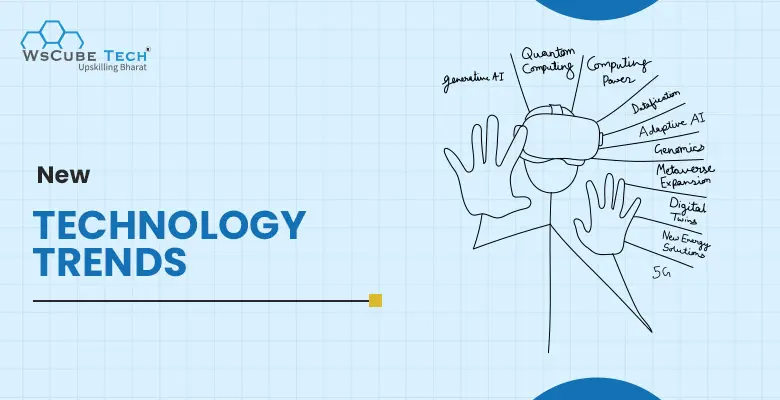The Future of SEO – How Technology and Tools Will Transform Strategies

The landscape of digital marketing is ever-evolving, and the centerpiece of this transformation lies in the future of SEO: how technology and tools will transform strategies. As we delve deeper into the realm of search engine optimization, it’s essential to understand not just where we’ve been but also where we’re headed. This article will explore the innovations and trends that are shaping the future of SEO, focusing on the technologies and tools that are redefining our strategies.
The Role of Artificial Intelligence in SEO

As we gaze into the crystal ball of SEO’s future, one cannot ignore the colossal impact of artificial intelligence (AI). AI is revolutionizing how we approach SEO by enabling marketers to analyze massive data sets more efficiently, personalize content, and improve user experience.
Understanding AI Algorithms
AI algorithms are becoming more sophisticated, allowing search engines like Google to assess content relevance like never before. Traditional keyword stuffing may soon become obsolete as search engines prioritize semantic understanding over mere keyword frequency.
This shift means that content must be crafted with an emphasis on intent rather than just specific phrases. For instance, when a user types “best pizza near me,” AI can interpret their intent and serve them options based on location, past behavior, and preferences. This forces content creators to think broadly about user intent, making it necessary to provide comprehensive answers to potential queries.
AI is also capable of analyzing user behavior patterns, which can inform SEO strategies. With predictive analytics, businesses can anticipate what users might be searching for in the future, allowing them to tailor their content and optimize their sites accordingly.
Chatbots and Voice Search
Chatbots powered by AI are becoming invaluable tools for enhancing user interaction and engagement. They can provide instant answers to customer queries, leading to increased user satisfaction and dwell time. As more people use voice search through devices like Amazon Alexa or Google Home, optimizing for conversational queries becomes crucial.
Voice search relies heavily on natural language processing (NLP), pushing content creators to adapt their writing style to a more conversational tone. Incorporating long-tail keywords that mimic natural speech patterns will cater to this trend effectively.
Furthermore, integrating chatbots within websites can streamline the user journey, ultimately reducing bounce rates and improving overall site rankings.
Machine Learning in Data Analysis
Machine learning—an extension of AI—enables systems to learn from data patterns without explicit programming. In SEO, this means enhanced data analysis capabilities that can identify trends, measure performance, and suggest actionable insights.
For example, machine learning algorithms can process user interactions on a website to determine which elements lead to conversions and which do not. By applying these insights, marketers can refine their SEO strategies for maximum effectiveness.
This continual learning aspect allows companies to stay ahead of the curve in a rapidly changing digital landscape, ensuring their SEO practices remain relevant and effective.
The Rise of Local SEO Technologies

With the increasing importance of localized searches, local SEO is poised to play a critical role in the future of online visibility. Consumers are increasingly seeking services and products within proximity, presenting unique opportunities for businesses to capture this market segment.
Proximity-Based Searches
Mobile devices have transformed how consumers search for local businesses. A significant number of searches now reflect immediate needs, such as “restaurants nearby” or “plumbers open now.” Local SEO strategies must evolve to accommodate this change, requiring businesses to optimize their online presence for local search results.
Leveraging tools like Google My Business, businesses can ensure they’re listed correctly on maps and search engines. Optimizing these listings with accurate information, images, and customer reviews can significantly enhance visibility.
Geolocation and Targeted Advertising
Geolocation technology is incredibly powerful in pinpointing user locations, enabling hyper-targeted advertising campaigns. Businesses can leverage this technology to deliver personalized advertisements to users based on their physical location at any given moment.
This strategy enhances engagement and conversion rates by serving users ads relevant to their current context. For example, a person walking past a coffee shop could receive a special offer through their mobile device, encouraging them to stop in for a quick purchase.
The Importance of Online Reviews
Online reviews have become a substantial factor for local SEO. Search engines consider the quantity and quality of reviews when determining local rankings. Encouraging satisfied customers to leave positive reviews and responding to feedback can bolster a business’s reputation and visibility.
Tools that monitor and manage online reviews can help businesses capture valuable customer insights and enhance their SEO efforts. By maintaining an active presence on platforms such as Yelp and Google, companies can engage directly with their audience while improving their search rankings.
The Impact of User Experience on SEO Strategies

Beyond traditional optimization tactics, user experience (UX) is becoming a primary focus in the future of SEO. Search engines increasingly reward sites that provide a seamless experience, emphasizing the need for a holistic approach to SEO strategy.
Core Web Vitals and Page Experience
Google’s rollout of Core Web Vitals has spotlighted the importance of page experience as a ranking factor. These metrics assess loading performance, interactivity, and visual stability, directly influencing how users perceive a website.
Ensuring that websites are optimized for speed and responsiveness will be critical in retaining visitors and keeping bounce rates low. Tools like Google PageSpeed Insights can provide invaluable data to help developers make necessary adjustments.
Mobile Optimization
With the global shift towards mobile usage, optimizing for mobile-friendliness is no longer optional. Responsive designs, fast loading times, and easy navigation on smaller screens are essential components of an effective SEO strategy.
Employing mobile-first indexing will be crucial, as Google prioritizes mobile versions of web pages during the ranking process. Marketers must ensure that their websites provide an equally engaging experience, regardless of the device used to access them.
Engaging Content and Multimedia
Content remains king in SEO, but the format is evolving. Engaging multimedia components—such as videos, infographics, and interactive elements—can significantly enhance user experience.
Search engines favor sites that keep users engaged longer, and incorporating varied content formats can achieve this goal. Furthermore, creating shareable content encourages user interaction and increases backlinks, positively impacting SEO efforts.
Emerging Tools and Technologies Shaping the Future of SEO
The technological landscape surrounding SEO is continuously evolving, introducing new tools that can help marketers accomplish their goals more efficiently.
SEO Automation Tools
Automating repetitive tasks can save time and resources, allowing marketers to focus on strategy and creative content creation. Tools employing AI can automate keyword research, track rankings, and even generate content outlines, simplifying the optimization process.
These automation tools enable organizations to maintain a competitive edge by freeing up staff to concentrate on higher-level strategic decisions rather than getting bogged down by mundane tasks.
Analytics and Performance Tracking
Advanced analytics platforms are becoming indispensable for measuring success in SEO strategies. Understanding metrics related to traffic sources, user demographics, and conversion rates offers insights that can guide future actions.
Platforms like Google Analytics, Ahrefs, and SEMrush provide real-time data that can inform timely adjustments to SEO tactics. By regularly analyzing performance data, businesses can pivot quickly to address emerging trends or challenges.
Integration of Augmented Reality (AR)
While still in its infancy, augmented reality is beginning to influence SEO strategies, especially in industries such as retail and real estate. AR technology enables users to visualize products or spaces in their environment, enhancing their shopping experience.
Incorporating AR into marketing channels may attract more visitors and fosters greater engagement, ultimately boosting website rankings.
FAQs
What is the future of SEO?
The future of SEO lies in advanced technologies such as AI and machine learning, improved local SEO strategies, a heightened focus on user experience, and the emergence of innovative tools and platforms.
How does AI influence SEO strategies?
AI improves data analysis, enhances personalization, and optimizes content creation. It enables businesses to understand user intent better and predict future search behaviors, allowing for more targeted SEO strategies.
Why is local SEO important?
Local SEO helps businesses reach their target market effectively by optimizing their online presence for local searches, addressing the increasingly mobile nature of consumer behavior.
What role does user experience play in SEO?
User experience directly impacts SEO rankings as search engines reward sites that provide seamless, engaging experiences. Factors such as site speed, mobile optimization, and content engagement are crucial components of UX.
Which tools can aid in optimizing my SEO strategies?
Numerous tools can assist in optimizing SEO strategies, including SEO automation tools, analytics platforms like Google Analytics, and specialized software for keyword research and performance tracking.
Conclusion
As we stand on the brink of a new era in digital marketing, understanding the future of SEO: how technology and tools will transform strategies is paramount. From the transformative capabilities of AI and machine learning to the growing significance of local SEO and user experience, the landscape of SEO is destined to undergo significant changes.
Marketers who embrace these advancements and adapt their strategies accordingly will position themselves competitively in the digital marketplace. As we venture deeper into this technological age, the synergy between creativity, analytics, and innovation will define the future of successful SEO practices.